Reverse Mortgage vs. Home Equity Loan
When it comes to unlocking the value tied up in your property, two popular options available are a reverse mortgage and a loan. Both can provide you with funds by leveraging the equity in your home, but they operate differently. This in-depth comparison between Reverse Mortgage vs. Home Equity Loan will guide you through these options and assist you in choosing the right one that fits your needs and circumstances.
Understanding Reverse Mortgages
What Is a Reverse Mortgage?
A reverse mortgage is a financial tool that allows homeowners aged 62 or older to convert a portion of their home equity into cash. It offers various payout options without the need to sell the home or make monthly mortgage payments. The home must be the primary residence, and the loan amount is based on factors such as the appraised value of the home, current interest rates, and the borrower’s age.
How It Works: Unlike a traditional mortgage where the homeowner makes monthly payments to the lender, with a reverse mortgage, the lender makes payments to the homeowner. The homeowner can choose how they want to receive these payments, and the loan balance grows over time. The loan becomes due when the homeowner passes away, sells the home, or moves out, and the proceeds from the sale of the house are generally used to pay off the loan.
Pros of Reverse Mortgages
-
- No Monthly Payments: Unlike traditional loans, there’s no need to make monthly payments. This is one of the most attractive features for many seniors, as they can access the equity in their homes without needing to worry about a monthly bill.
- Flexible Payout Options: Borrowers can choose the way they receive the money, whether it’s a lump sum, monthly payments to supplement income, or a line of credit that they can draw upon as needed.
- No Impact on Government Benefits: Generally, the funds from a reverse mortgage do not count as income and therefore don’t affect qualifications for Social Security or Medicare. However, it may affect eligibility for Medicaid or other need-based programs, so consultation with a financial advisor is recommended.
Cons of Reverse Mortgages
-
- High Closing Costs: Reverse mortgages often have higher upfront fees compared to traditional mortgages, including origination fees, mortgage insurance premiums, and other closing costs. These can eat into the funds available to the homeowner.
- Decrease in Equity: As the loan balance increases with interest and fees, the equity in the home gradually diminishes. This could potentially leave fewer assets for heirs, who will either have to pay off the loan or sell the house upon the homeowner’s death.
- Age Limitation: Reverse mortgages are available only to those who are 62 years or older. This limits the availability of this financial tool to a specific age group.
Comparison: Reverse Mortgage vs. Home Equity Loan
Here’s a comparative overview:
| Aspect | Reverse Mortgage | Home Equity Loan |
|---|---|---|
| Age Requirement | 62 or older | None |
| Monthly Payments | No | Yes |
| Interest Rate | Variable | Fixed |
| Use of Funds | Flexible | Flexible |
| Repayment Terms | Loan due at move-out or death | Fixed term |
Understanding Home Equity Loans
What is a Home Equity Loan?
A home equity loan, often referred to as a “second mortgage,” is a type of loan that allows homeowners to borrow money against the equity in their property. Equity refers to the difference between the current market value of the home and the outstanding balance on the mortgage. A home equity loan provides the borrower with a lump sum of money at a fixed interest rate, and the loan is repaid in regular monthly payments over a set term.
How It Works: A home equity loan is secured by the borrower’s house, meaning that the house serves as collateral for the loan. The amount you can borrow is usually determined by factors such as the home’s value, your remaining mortgage balance, your creditworthiness, and the lender’s specific policies.
Pros of Home Equity Loans
-
- Fixed Interest Rates: One of the main advantages is the stability of having a fixed interest rate. This means the interest rate will remain constant throughout the life of the loan, making budgeting and financial planning easier.
- Potential Tax Benefits: Depending on individual circumstances and tax laws, the interest paid on a home equity loan may be tax-deductible. This can provide additional financial incentives, though it’s wise to consult with a tax professional to understand how it applies to your situation.
- Use for Various Purposes: A home equity loan can be used for a variety of purposes, such as home renovations, paying for education, consolidating high-interest debt, or even funding a business venture. This flexibility allows homeowners to strategically leverage their home’s value.
Cons of Home Equity Loans
-
- Monthly Payments Required: Unlike reverse mortgages, home equity loans require regular monthly payments. This commitment can be burdensome for some borrowers, particularly if financial circumstances change.
- Risk of Foreclosure: Since the home serves as collateral, failure to make timely payments can lead to foreclosure. Losing one’s home is a serious consequence and should be carefully considered when taking out this type of loan.
- Interest Rate Variations: Although the interest rate on a home equity loan is fixed, different lenders may offer varying rates. Shopping around and comparing offers is essential to secure the best possible terms.
Comparison: Reverse Mortgage vs. Home Equity Loan
Here’s a comparative overview:
Eligibility and Requirements
Reverse Mortgage Eligibility
- Age 62 or older: Only individuals who are 62 years old or older can qualify for a reverse mortgage. This age requirement ensures that the financial product is tailored to seniors who might be in need of additional income.
- Primary residence: The property must be the homeowner’s primary residence. Vacation homes or investment properties are not eligible for a reverse mortgage.
- Sufficient equity: The homeowner must have sufficient equity in the home. The exact amount needed can vary by lender and the specific type of reverse mortgage, but generally, the more equity in the home, the more funds the homeowner can access.
Home Equity Loan Requirements
- Good credit score: Lenders typically look for a good to excellent credit score when evaluating eligibility for a home equity loan. This helps demonstrate that the borrower is a responsible credit user.
- Stable income: The borrower must have a stable income to show that they have the means to make regular monthly payments over the life of the loan.
- Enough home equity: Similar to a reverse mortgage, sufficient equity in the home is required. The amount of equity will determine the maximum amount that can be borrowed.
Tax Implications
Reverse Mortgage Taxes
Though not taxable, reverse mortgage funds might affect eligibility for certain government benefits: The money received from a reverse mortgage is typically not considered taxable income. However, it might affect eligibility for need-based government benefits like Medicaid. Consultation with a tax or financial advisor is recommended to understand the individual implications.
Home Equity Loan Taxes
Interest may be deductible under specific circumstances: Depending on the use of the funds and the individual’s tax situation, the interest paid on a home equity loan may be tax-deductible. Again, professional tax advice is advised to understand how this applies.
Real-Life Scenarios
When to Choose a Reverse Mortgage
Ideal for seniors seeking additional income without monthly payment obligations: A reverse mortgage might be the right choice for seniors looking to supplement their income without the burden of monthly payments. It can be a flexible way to utilize the equity in the home, especially if other retirement savings are limited.
When to Choose a Home Equity Loan
Suitable for those needing lump-sum amounts with predictable payments: A home equity loan could be an appropriate choice for individuals needing a large amount of money for specific purposes, such as home improvements or debt consolidation. The fixed interest rate and predictable monthly payments can be attractive for those looking for stability in their financial planning.
Is a reverse mortgage or home equity loan better for me?
The choice between a reverse mortgage and a home equity loan is highly individualized and depends on several factors:
- Age: If you are 62 or older, a reverse mortgage may be an option. Younger individuals will need to consider a home equity loan or other alternatives.
- Financial Goals: Consider what you want to achieve with the funds. If you need consistent extra income without monthly repayments, a reverse mortgage might be suitable. If you need a lump sum for specific purposes and can handle monthly repayments, a home equity loan may be better.
- Equity and Property: Assessing the equity in your home and the property’s suitability for either option is also essential.
- Professional Advice: Consultation with a financial advisor can provide tailored recommendations based on your unique situation and needs.
Can I lose my home with a reverse mortgage?
Yes, there are scenarios where you could lose your home with a reverse mortgage:
- Failure to Maintain Property: The borrower must maintain the home according to the agreed-upon standards.
- Non-compliance with Loan Terms: Other violations of loan terms, such as failing to pay property taxes or insurance, can also lead to foreclosure.
- Permanent Move: If the home is no longer your primary residence, the loan may become due.
What happens to a home equity loan if I sell my house?
When you sell your house, the home equity loan must be paid off at the time of sale. The proceeds from the sale will typically be used to repay the outstanding balance on the home equity loan. Any remaining funds after paying off the loan and other associated selling costs would then be yours to keep or use as you see fit.
Can I get a reverse mortgage if I have an existing mortgage?
Yes, you can get a reverse mortgage if you have an existing mortgage, but the existing mortgage must be paid off using the reverse mortgage funds. This could significantly reduce the available funds from the reverse mortgage for other purposes. It is essential to work closely with a lender to understand how this would work in your specific situation.
Is the interest on a home equity loan tax-deductible?
Interest on a home equity loan may be tax-deductible, but this depends on factors such as:
- Use of Funds: If the funds are used to buy, build, or substantially improve the home that secures the loan, the interest may be deductible.
- Tax Laws: The specific tax laws in your jurisdiction and any changes to them.
- Professional Advice: It is advisable to consult with a tax professional to understand how these rules apply to your situation.
How does a reverse mortgage get repaid?
A reverse mortgage is repaid when one of the following occurs:
- Selling the Home: If the borrower decides to sell the home, the proceeds from the sale will be used to repay the reverse mortgage.
- Moving Out: If the home is no longer the borrower’s primary residence, the loan becomes due.
- Borrower Passes Away: Upon the borrower’s death, the heirs have the option to repay the loan and keep the home or sell the home to repay the loan.
In all cases, if the sale of the home does not cover the full amount owed, the remaining balance is typically covered by mortgage insurance, and the borrower or heirs are generally not responsible for the deficit.
These answers aim to provide a detailed look at these common questions, but personal situations can vary widely, so professional financial or legal consultation is always recommended.
The LeaderOne Lowdown on Reverse Mortgage vs. Home Equity Loan
In the end, whether a reverse mortgage or a home equity loan is the right path for you boils down to your unique circumstances. Your age, financial aspirations, and feelings about repayment all come into play. While the process may seem daunting, understanding the individual strengths and limitations of each option can empower you to make a confident choice. And remember, you don’t have to go it alone — a financial advisor is like a trusted friend in the world of finance. They can provide insights tailored specifically to your situation, ensuring you make a decision that’s not only financially sound but also aligned with your personal goals. At LeaderOne, we’re here to help guide you on this important journey, every step of the way. Feel free to reach out!



